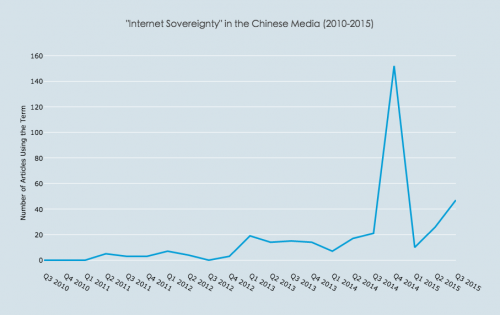Formally introduced into the Chinese political lexicon in a June 2010 State Council Information Office white paper called “The Internet in China,” the term “Internet sovereignty,” or wangluo zhuquan (网络主权), encapsulates the Chinese Communist Party’s assertion that the traditional notion of national sovereignty is applicable to cyberspace, which proponents of “net neutrality” would argue must be kept borderless and free of government interference. Under the principle of “Internet sovereignty,” China reserves the right to control the flow of information on the Internet within its borders and across its borders, even if in ways that might infringe upon the information rights of individuals outside of China’s physical borders. The advancement of “Internet sovereignty” is often associated with what some have called the fragmentation, or balkanisation, of cyberspace.





















